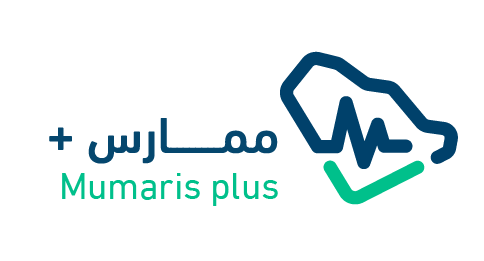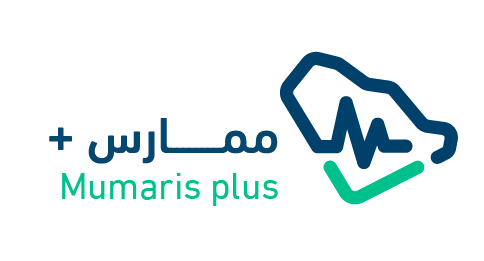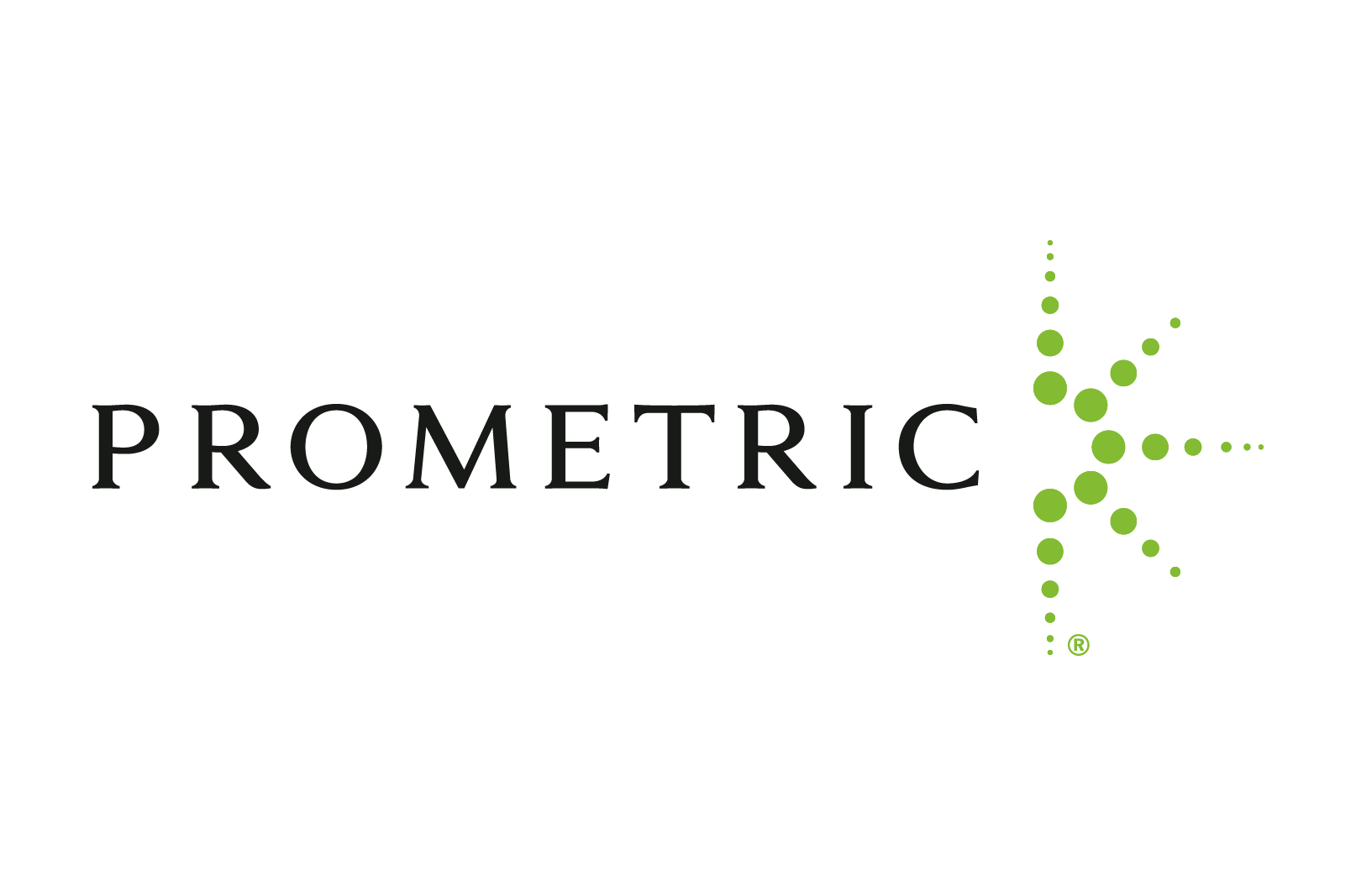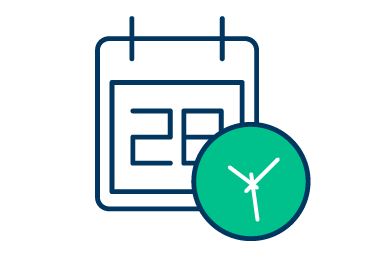Help us develop our services
How satisfied are you with the services provided on the portal of the Saudi Commission for Health Specialties?
About Mumaris Plus
Mumaris Plus is the unified portal for the services of the Saudi Commission for Health Specialties (SCFHS) for health practitioners in the Kingdom of Saudi Arabia. Through the Mumaris Plus portal,
practitioners can apply for all of the following services: You can apply and view the requirements and fees by clicking on the service

Professional Classification and Registration Requirements
The SCFHS has set several criteria in which accuracy and objectivity in evaluating the previous(training) and subsequent(experience)professional experience were considered, for obtaining certificates and vocational training, and for professionally evaluating the capabilities of their holders and classifying them accordingly
would you like to receive help accessing professional classification and registration requirements?
Specializations Description
It is a brief indicative description that helps in defining the minimum requirements and basic competencies required for the purposes of professional classification and registration in order to clarify SCFHS's services to all beneficiary categories.
Specialization Description Cards will be reviewed periodically to ensure that they are updated according to global and local changes in the health field, and we are pleased to receive the contributions of specialists in this review through submitting feedback or participating in the periodic review workshops through this link
* Subject to terms and conditions
A specialty concerned with diagnosis, assessment and management of individuals of different ages that are physically injured or suffer from cognitive impairment and disability that includes diagnosis and treatment (function recovery) of patients with functionally disabled conditions that were disabled due to a disease, disorder or injury. Moreover, it includes comprehensive and multidisciplinary care that aims at complete recovery of the patient through meeting the individual’s physical, emotional, medical, occupational and social requirements. It also includes treatment of associated diseases and disabilities and preventing their complications
Theoretical, practical, and procedural knowledge of the following:
- Basic sciences of anatomy, motor system, nervous system and cardiovascular physiology.
- Basics of ergonomics and applying it on clinical care, in addition to kinetics and kinetic studies in respect with their relation to walking, activity and biomechanics in sport and exercises.
- Basic sciences of clinical and molecular genetics and geriatrics and their effect on the physiology and microbiology of inflammations, specifically the musculoskeletal system and the principles of nerve injury and repair.
- Principles of pharmacology and includes pharmacokinetic and pharmacodynamic changes that occur with physical disabilities and the effect of pharmacological agents on patients with physical diseases and cognitive and behavioral disabilities, in addition to drugs with withdrawal effects.
- Imaging techniques used in conditions of the musculoskeletal and neurological systems, including indications, contraindications and selection of the appropriate technique.
- Principles of full medical assessment and possible rehabilitation in the full clinical scope and emergency and urgent medical management of involved patients.
- Principles of management of pediatric special rehabilitation that include dysphagia, stuttering, neurogenic bladder, irritable bowel syndrome, sexual and reproductive health and dysfunction, fitness and well-being, convulsions and others.
- Principles of perioperative and postoperative functional improvement and postoperative care of musculoskeletal system, in addition to principles of medical prescribing and management of prosthetics, spine and orthotics.
Obtaining, after bachelor of medicine and surgery, a qualification or a clinical training program specialized for physicians that is not less than 24 months. It should also fulfill the minimum acceptable limit of practicing the specialty according to the standards and regulations of the commission at the time of submitting the professional registration application.
A specialty concerned with geriatric diseases and focuses on healthcare of the elderly.
Theoretical, practical, and procedural knowledge of the following:
- Diagnosis, assessment and making a complete treatment plan including reviews and instructions of the elderly, communicate effectively with them, and compensate for auditory, visual and cognitive deficits.
- Basic skills in multiaxial diagnosis including the biological, psychological and social formula in respect with its relation to the elderly.
- Basic science in physiological geriatric changes in organ systems, sensory systems and perception.
- Basic skills in pharmacology and geriatrics principles. This includes pharmacokinetics and side effects in the elderly, risks of polypharmacy and identification and prevention of drug interactions.
- Basic skills in assessment and diagnosis of psychological disorders of the elderly, their effect on physiological state, morbidity and mortality, including: mood, psychotic, anxiety, cognitive and personality disorders and other diseases.
- Basic techniques of psychotherapy and behavioral therapy, in addition to assessment of cultural and ethnic varieties of the elderly, acquaintance of family issues and providing care.
- Basic skills in recognizing indications and contraindications for referring patients to physical, occupational, verbal or other rehabilitative therapies.
- Evaluate and manage the care of patients at high risk for poor outcome from common cases such as deconditioning, stroke, hip fracture and dysphagia.
Obtaining, after bachelor of medicine and surgery, a qualification or a clinical training program specialized for physicians that is not less than 24 months. It should also fulfill the minimum acceptable limit of practicing the specialty according to the standards and regulations of the commission at the time of submitting the professional registration application.
A specialty concerned with neonates that suffer from a disease or need special medical care due to premature labor, low birth weight, intrauterine growth retardation, congenital malformations (congenital anomalies) and other diseases.
Theoretical, practical, and procedural knowledge of the following:
- Cases of high-risk pregnancy and pathophysiology of common pregnancy and labor complications and their effect on pregnancy and the embryo.
- Prenatal investigations, their indications, risks and advantages such as chorionic villus sampling, non-stress test, ultrasound, and others.
- Understanding the effect of different maternal diseases on pregnancy, in addition to the effect of maternal drugs on the fetus.
- Normal development of premature infants and available tests to assess neurodevelopmental outcomes.
- All neonatal acute and chronic diseases.
- Neonatal tumors.
- Neonatal CPR.
Obtaining, after bachelor of medicine and surgery, a qualification or a clinical training program specialized for physicians that is not less than 24 months. It should also fulfill the minimum acceptable limit of practicing the specialty according to the standards and regulations of the commission at the time of submitting the professional registration application.
A specialty concerned with the diagnosis and treatment of a wide group of pediatric diseases, methods of their prevention and child health promotion.
Theoretical, practical, and procedural knowledge of the following:
- Taking full medical history, clinical examination, diagnosis and understanding of the child morbidity.
- Assessment and follow-up of acute and chronic pediatric diseases.
- Using preventive and therapeutic interventions of pediatrics effectively.
- Assessment and diagnosis of pediatric oncological cases.
- Health supervision, assessment of growth and development in pediatrics, prevention of disease through immunization, prevention of infection through education, promotion of a healthy environment and a healthy lifestyle.
- Radiological diagnostic options and laboratory investigations related to pediatrics.
Obtaining, after bachelor of medicine and surgery, a qualification or a clinical training program specialized for physicians that is not less than 24 months. It should also fulfill the minimum acceptable limit of practicing the specialty according to the standards and regulations of the commission at the time of submitting the professional registration application.
A specialty concerned with emergency cases of different severity. It is the primary portal for sorting before the patient enters the hospital in critical and unscheduled cases, where the patients are divided into several areas according to the severity of the emergency symptom. Patients are then diagnosed, treated and transferred to the required specialty to complete the required care or dismiss them from the hospital and make reviews for them.
Theoretical, practical, and procedural knowledge of the following:
- Ability to assess cases of injuries and accidents and urgent medical cases of different kinds and different age groups.
- Ability to sort patients and determine priorities in the emergency environment during crises and others as well. This is in addition to the ability to form priorities for patients according to the disease severity.
- CPR and its acquaintance for different groups and knowing the management of all types of thrombi whether cerebral, cardiac, pulmonary or others.
- Making a full treatment plan for patients whether they are scheduled to be discharged, anesthetized or transferred, including the necessary medications, required reviews, and full instructions for the same.
- Radiological diagnostic options and laboratory investigations related to emergency and critical cases.
- Basic surgical skills in the management of emergency and critical cases.
Obtaining, after bachelor of medicine and surgery, a qualification or a clinical training program specialized for physicians that is not less than 24 months. It should also fulfill the minimum acceptable limit of practicing the specialty according to the standards and regulations of the commission at the time of submitting the professional registration application.
A specialty concerned with advanced or critical care of life or involved body organs of critically ill patients. Moreover, it includes treatment and diagnosis of critical care patients and performing essential medical interventions until they are medically stable.
Theoretical, practical, and procedural knowledge of the following:
- Theoretical sciences related to critical care medicine practice.
- Essential skills in practice such as diagnosis, assessment and making treatment and follow-up plans for critical cases.
- Full knowledge of all treatment options and surgical interventions that are appropriate for each critically ill patient.
- Full knowledge of all CPR sciences for different age groups of critical cases.
- Ordering laboratory investigations and medical imaging, collecting samples and taking biopsies in order to reach medical diagnosis.
- Acquaintance of methods of dealing with crises and disasters and how to make the necessary plans for the same and distribute cases according to their priority.
Obtaining, after bachelor of medicine and surgery, a qualification or a clinical training program specialized for physicians that is not less than 24 months. It should also fulfill the minimum acceptable limit of practicing the specialty according to the standards and regulations of the commission at the time of submitting the professional registration application.
A specialty concerned with anesthesiology and includes basic skills and sciences of patient’s anesthesia and care before and after surgical operations, labor and some specific surgical intervention.
Theoretical, practical, and procedural knowledge of the following:
- Skills that are essential for practicing anesthesia and different treatment options of the specialty and competency to perform the same for different age groups.
- Skills in clinical evaluation, taking history and medical diagnosis of most diseases and injuries for different age groups and knowing the appropriate medical options of anesthesia for them.
- All risks resulting from anesthesia and the ability to make decisions for all types of anesthesia procedures.
- Different methods of treatment and control of acute and chronic pains.
- All types of drugs of analgesia and anesthesia.
- Management of critical and ICU patients.
Obtaining, after bachelor of medicine and surgery, a qualification or a clinical training program specialized for physicians that is not less than 24 months. It should also fulfill the minimum acceptable limit of practicing the specialty according to the standards and regulations of the commission at the time of submitting the professional registration application.
Medical genetics is the study of genetic diseases, their etiology and how to prevent their recurrence.
Theoretical, practical, and procedural knowledge of the following:
- Diagnosis, assessment and making a complete treatment plan including reviews and instructions in any of the diseases related to genetic sciences and medicine.
- Basic concepts of cell and molecular biology and human genetics.
- Physiological description during stages of growth or pregnancy.
- Recognizing common clinical phenotypes that generally appear in genetic and metabolic disorders.
- Underlying biological/ molecular etiology of the disease.
- Review, interpret and understand related laboratory data and results through genetic investigations and understand their clinical significance.
- Basic skills in integrating other clinical, radiological and laboratory data to provide the best diagnosis based on results of histological examination.
- Recommend additional medical investigations or procedures that help reach the appropriate healthcare.
Obtaining, after bachelor of medicine and surgery, a qualification or a clinical training program specialized for physicians that is not less than 24 months. It should also fulfill the minimum acceptable limit of practicing the specialty according to the standards and regulations of the commission at the time of submitting the professional registration application.
A specialty concerned with dealing with the endocrine system, its diseases, its specific secretions known as hormones. Moreover, it cares for stages of human growth, psychological or behavioral activities of metabolism and the biological processes resulting from hormones.
Theoretical, practical, and procedural knowledge of the following:
- Diagnosis, assessment and making a complete treatment plan including reviews and instructions in any of the diseases related to hormonal disorders.
- Basic and advanced microbiology of endocrine glands, physiology and pathophysiology that provide the basis of understanding endocrinal disorders.
- Basic information and scientific approaches to diagnose, treat and prevent endocrinal disorders, including pediatric endocrinal disorders.
- Analysis, reading and diagnosis of endocrinal laboratory investigations results.
- Diagnosis and assessment including reviews and instructions of common diseases such as Diabetes, Hypertension and hyperlipidemia, etc.
- Treatment of common complications of all endocrinal diseases.
Obtaining, after bachelor of medicine and surgery, a qualification or a clinical training program specialized for physicians that is not less than 24 months. It should also fulfill the minimum acceptable limit of practicing the specialty according to the standards and regulations of the commission at the time of submitting the professional registration application.
A specialty concerned with diseases of allergy and immunology. It includes the study, diagnosis and treatment of health issues and immunological cases, including allergy and related symptoms and reactions. It also includes asthma, rhinitis, nasal sinuses issues or seasonal allergy and vaccinations, etc. Moreover, it includes interactions and reactions of drugs, food and others that threaten life. Furthermore, it includes immunological diseases that involve man.
Theoretical, practical, and procedural knowledge of the following:
- Diagnosis, assessment and making a complete treatment plan including reviews and instructions in any immunology and allergy sciences.
- Basic sciences of anatomy, physiology, autoimmune diseases, immune mechanisms and cells involved in immune responses. This includes differentiation, origin, reception, interactions and secretion.
- Basic sciences allergens and antigens including criteria that are not related to the disease, methods of measurement and avoidance of hypersensitivity and other immunological disturbances. This is in addition to microbiology and clinical immunology.
- Basic skills in diagnosis methods used in immunology and clinical allergy sciences, including indications, contraindications, principles of application and methods of interpretation.
- General principles and treatment methods used in clinical immunology.
- Management of emergency and critical cases related to the immune system. This includes acute cases of hypersensitivity that involve multiple vital systems in the body.
Obtaining, after bachelor of medicine and surgery, a qualification or a clinical training program specialized for physicians that is not less than 24 months. It should also fulfill the minimum acceptable limit of practicing the specialty according to the standards and regulations of the commission at the time of submitting the professional registration application.
Certificate Verification
The process of verifying the authenticity of certificates for all health practitioners holding certificates from outside the Kingdom of Saudi Arabia, by contacting the certificate-issuing body by DataFlow, the international and specialized company. This aims to found a safe health practice that is not flawed by any forgery or falsification or the like, which is considered to be one of the basic criteria for the accreditation of hospitals and health facilities by local and international bodies to have practitioners who are capable of practicing the health profession efficiently and in a safe manner
Continuing Professional Development
Continuing Professional Development enhances the concept of lifelong learning commitment and enabling the practitioner to be responsible for their professional and ethical development towards their career.
Calendar of professional development activities
Exams
Postgraduate Program Exams in SCFHS aim to assess the level of practitioners and develop them to ensure that they can practice their specialty efficiently and competently.

Mumaris e-Services
Rules and Regulations
Frequently Asked Questions
Check Frequently Asked Questions About Practitioner





